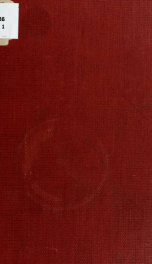History of the Ottawa and Chippewa Indians of Michigan; a grammar of their language, and personal and family history of the author

Blackbird (Mack-e-te-be-nessy) was an Ottawa chief's son who served as an official interpreter for the U.S. government and later as a postmaster while remaining active in Native American affairs as a teacher, advisor on diplomatic issues, lecturer and temperance advocate. In this work he describes how he became knowledgeable about both Native American and white cultural traditions and chronicles his struggles to achieve two years of higher education at the Ypsilanti State Normal School. He also deals with the history of many native peoples throughout the Michigan region (especially the Mackinac Straits), combining information on political, military, and diplomatic matters with legends, personal reminiscences, and a discussion of comparative beliefs and values, and offering insights into the ways that increasing contact between Indians and whites were changing native lifeways. He especially emphasizes traditional hunting, fishing, sugaring, and trapping practices and the seasonal tasks of daily living. Ottawa traditions, according to the author, recall their earlier home on Canada's Ottawa River and how they were deliberately infected by smallpox by the English Canadians after allying themselves with the French. Blackbird finds Biblical parallels with Ottawa and Chippewa accounts of a great flood and a fish which ingests and expels a celebrated prophet. He includes his own oratorical "Lamentation" on white treatment of the Ottawas, twenty-one moral commandments of the Ottawa and Chippewa, the Ten Commandments and other religious material in the Ottawa and Chippewa language, and a grammar of that language. Henry Rowe Schoolcraft appears in the narrative in his role as an Indian agent Blackbird (Mack-e-te-be-nessy) was an Ottawa chief's son who served as an official interpreter for the U.S. government and later as a postmaster while remaining active in Native American affairs as a teacher, advisor on diplomatic issues, lecturer and temperance advocate. In this work he describes how he became knowledgeable about both Native American and white cultural traditions and chronicles his struggles to achieve two years of higher education at the Ypsilanti State Normal School. He also deals with the history of many native peoples throughout the Michigan region (especially the Mackinac Straits), combining information on political, military, and diplomatic matters with legends, personal reminiscences, and a discussion of comparative beliefs and values, and offering insights into the ways that increasing contact between Indians and whites were changing native lifeways. He especially emphasizes traditional hunting, fishing, sugaring, and trapping practices and the seasonal tasks of daily living. Ottawa traditions, according to the author, recall their earlier home on Canada's Ottawa River and how they were deliberately infected by smallpox by the English Canadians after allying themselves with the French. Blackbird finds Biblical parallels with Ottawa and Chippewa accounts of a great flood and a fish which ingests and expels a celebrated prophet. He includes his own oratorical "Lamentation" on white treatment of the Ottawas, twenty-one moral commandments of the Ottawa and Chippewa, the Ten Commandments and other religious material in the Ottawa and Chippewa language, and a grammar of that language. Henry Rowe Schoolcraft appears in the narrative in his role as an Indian agent
Info about the book
Author:
Series:
Unknown
ISBN:
1163832138
Rating:
4.5/5 (3)Your rating:
0/5
Languge:
English
Users who have this book
Users who want this book
What readers are saying
What do you think? Write your own comment on this book!
write a commentGenre
if you like History of the Ottawa and Chippewa Indians of Michigan; a grammar of their language, and personal and family history of the author try:
Other books by this author
Do you want to exchange books? It’s EASY!
Get registered and find other users who want to give their favourite books to good hands!

